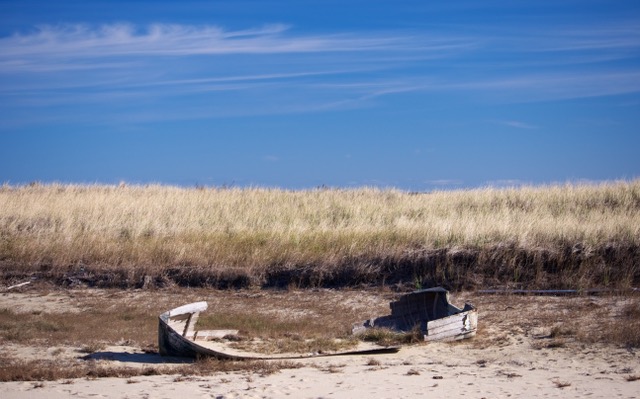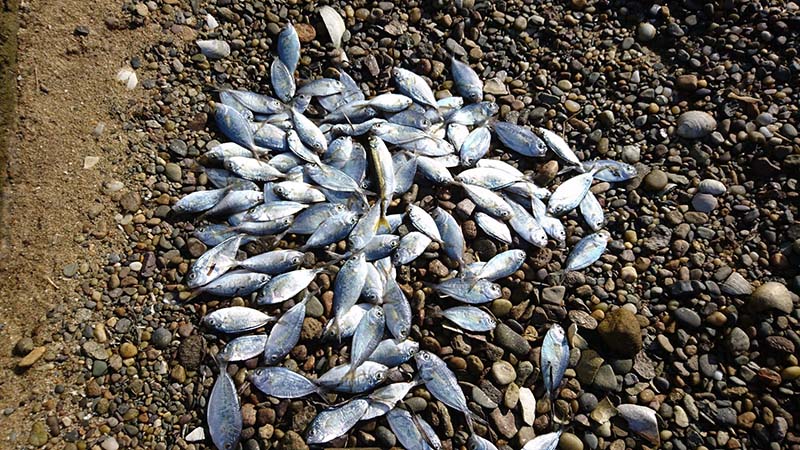Friends Rory and Mary from the UK were with us – they were in Washington eight years ago the night Obama won and wanted to be here again to usher in history. The polls were in tune; taking our cue from the media we were confident of another victory for the Democrats.
The night of the vote, we had arranged to meet in the Fairmount Hotel in the centre of Boston where the Mass Dems were holding an eve of poll reception. As soon as I walked in, around 8.30pm, I could tell something was wrong. The others were slumped in chairs in the lobby, looking as if someone had hit them over the head with a copy of “Stronger Together’, Hillary Clinton’s hefty book. ‘What’s the matter?’, I asked. “Florida,” they answered grimly.
The atmosphere in the hall was sinking fast. Media types on stages in the centre were hooked onto phones and staring at screens with disbelieving faces. Some women in party hats who were clearly ready to welcome a female president looked close to tears.
TVs on the walls were showing the up and downs of the count. It reminded us all very much of Brexit. Occasionally Clinton’s pile of chips would outpace Trumps but then his would grow again.
Night after night for months the American TV networks had assured us that their polling methods were much richer and deeper than the British ones and that there was no such thing as a ‘shy’ Trump voter. But now this was revealed as mere complacency.
The room was thinning out, and we left, passing a labrador tied to a chair in the hall. The dog looked unbelievably mournful. So did we, I suspect.
We headed to a pub where a blonde at the bar started to cry when we commiserated with her. Emily was in Boston for work but couldn’t bear to watch the election on her own in her hotel room. In contrast, the barman was philosophical, not having had much time for either candidate.
We tried to offer consolation, pointing out that, unlike the idiocy of Brexit which is likely to trundle on for years, a Trump presidency is not permanent. In four years the American people get to vote again. But we were despondent too – about the likely impact of the new regime at home and internationally.
The next day, thousands gathered in the centre of Boston to demonstrate their anger. As in other cities, their right to assemble and to protest peacefully was upheld – in New York crash barriers were erected to allow the demonstrators to gather right outside Trump tower. After a couple of days, most gave up and went home but two days later there were still a handful of lively young folk gathered on the steps of the State House on Boston Common, gloved and woolly-hatted against the cold and chanting cheerfully in unison, like Trump’s anti-cheerleaders. (Click link for my short video.)
The young clerk at our grocery store was upset by the election result. “By the time you are as old as I am, you have lived through a lot of election defeats,” I told him. He nodded in agreement. “Yes, I’m sure.” (Not perhaps the reaction I had hoped for). He was concerned by the number of people on his Facebook feed who were sharing pictures of burning flags. “That’s not the way to go.”
There was a bit of flag burning in the US, but probably less trouble overall than there was when Obama was elected. However the Trump-ers I follow on Twitter were raging about the streets being invaded by “crying Liberals who need a nap”. A Trump-supporting site reported that Trump’s first act was to be to charge flag burners with treason. This is probably untrue – but making ‘flag desecration’ a crime has been tried before.
The next day, still in a state of disbelief, and feeling the need for the balm of nature, we decided to get out of town. We rented a car and drove town to the tip of Cape Cod, where the Pilgrim Fathers first landed in the Mayflower, exactly to the day 396 years earlier, after a long and difficult sea voyage. Several died. Someone was washed overboard but caught a halyard and managed to climb back on. A baby was born and christened Oceannus.
The walk began at the Pilgrim’s first landing spot, a simple plaque. Our friends had seen somewhere a Native American memorial of the same event, recording that for them, 1620 was a dark day in history. America has always been a country of migration, and deeply divided, from its earliest days. The Pilgrim Fathers were immigrants fleeing religious persecution. They found a beautiful land of challenge and opportunity; they brought racism in the way they viewed the native people.
A Stars and Stripes hung from the flagpole at the First Landing Place, flapping in the wind. The flag is a potent symbol for Americans, on all sides of the divide, signifying a country that exists for all of its people, that stands above politics. You see it everywhere. Someone had stuck one into a jam jar in a poignant Thanksgiving tribute on a memorial stone to someone I assume was a Mayflower descendant, in a little crazy paving of similar stones around the monument.
I
t seemed ironic that while our Facebook feeds were full of Scots desperately upset by the result of an election thousands of miles away, my husband Rob was conversely involved with a rugby match that Scotland were playing on the other side of the world. He had headphones tucked under his buff and was listening to the game. At one point he turned to me and said sharply “Yellow card”. Rory looked surprised and perhaps a little impressed – he didn’t realise Rob was listening to the game, and it transpired later her thought Rob was giving me a yellow card for some marital misdemeanour. I corrected this impression before he went home taking lurid tales of Trump’s America.
Mary, a No voter in the Scottish independence referendum, was wearing a St Andrews flag buff – she said she was reclaiming the blue and white flag as a symbol that belonged to everyone and not only to independence supporters. The British left, she felt, had made a big mistake by allowing first the Union Jack and then the Saltire to be claimed by Nationalists. “How did we walk into that one?” We discussed the fact that Trump’s wing of the Republican party is obviously trying to do the same with the Stars and Stripes.
Our walk took us across an uneven wall of rough-hewn stones built a century ago to protect the sand dunes from erosion. Now the tide surges through the stones twice a day and overtops it at high tide. Seabirds use the sharpest points to smash open shells, picking little shellfish up and dropping them in certain places.
Walls were on our mind with the Trump presidency and his campaign promise to build one at the border with Mexico. We spared a thought for America’s millions of illegal immigrants who had been promised an amnesty under Hillary Clinton; and now were potentially facing a very different future. The sad plight of those who are in the USA and are unable to travel and to ever see their loved ones was obvious when, shortly before the election, the Mexican border was opened for a few minutes to allow relatives to meet and long-parted people rushed into each others’ arms for a brief embrace.
Across the wall, we found a wide, empty beach, with a lighthouse in the distance. After a brief dispute about the best way, Rob and I took the high road while the others took the low road. We struggled through hawthorn bushes, in the process of which I lost my favourite scarf which had been a gift on leaving Scotland, and found this broken boat. It reminded me of the boats in Ian Hamilton Finlay’s garden at Little Sparta in Scotland, where they are symbolics of journeys, and of partings.

Looking out across the miles of empty beach, it was easy to imagine the pilgrims making land here, their joy and relief.
We met up with the others the lighthouse at the end of the promontory and headed back as the tide ebbed to its lowest point, leaving a wide sandy channel. On the way, I searched vainly for my lost scarf which was going to become the model against which all future scarves were judged and found wanting. Rob who was lagging behind then appeared holding it aloft.
Walking back across the wall, Mary noticed a small number of silver fish gasping in a rapidly drying puddle. They must have been washed over the wall at high tide, and now they were doomed, dying in the last remaining patch of water, unable to escape with the low tide.
This must be something that happens every day, she pointed out. We walked on, leaving kind-hearted Mary looking helplessly at the dying fish. Rory joked that she was searching for the number for International Fish Rescue on her phone. Of course, there was nothing we could do but move on.

Photo: Mary Brown
